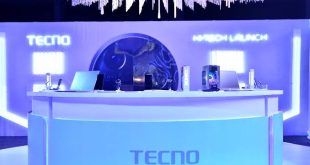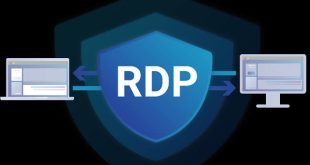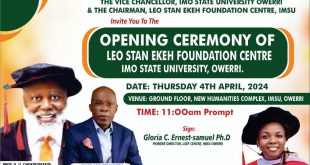As part of an effort to protect their investments, telecoms operators has asked Federal Government on creating a level playing field for Mobile Network Operators and Over The Top (OTT) players in the industry.
They expressed worry that the unchecked deployment of undersea cables and fibre optic infrastructure in Nigeria will threaten their survival and as therefore, requested for a level playing field.
They said that free access to Internet services that OTT players such as Facebook offered was a threat to the investments of mobile network operators, Punch reports.
They made this known while responding to recent news that Facebook in collaboration with a group of telecom companies are set to connect Nigeria and 22 countries in Africa, the Middle East and Europe to the Internet by laying a large subsea cable with about 180Tbps capacity by 2024.
Also, Google had last year announced plans to build a new private subsea cable that would connect Africa with Europe, with its first landing in Nigeria by 2021.
Google said the subsea cable, called Equiano, which was named after a Nigerian-born writer and abolitionist, Olaudah Equiano, would run between Portugal and South Africa.
The Chairman, Association of Licensed Telecommunications Operators of Nigeria, Mr Gbenga Adebayo, said Over The Top players like Facebook and Google did not have tax obligations to the government in countries where they operate unlike mobile network operators.
According to him, most of the revenue generated by OTT players are from advertisement while they make Internet access free to end-users.
ALSO READ: NigComSat Moves to Reduce Bandwidth Price to Address Connectivity Issues
Adebayo said, “Virtual operators like Facebook are organisations that mainstream operators have to watch out for because a number of services they render today are free of charge. Their revenue is mostly from advertisement. They don’t have tax obligations; they don’t have any obligation like the conventional licensee have to the government.
“If they should come with this service that is free end-to-end, it will be a significant threat to the survival of the mainstream operators.”
He noted that while there was sufficient capacity from the undersea cables on the shores of the country, the main challenges that needed to be addressed urgently was the nationwide fibre optic backbone to reach the last-mile.
“Right now, we have enough broadband capacity on the seashores but we have not been able to transfer such capacity to the hinterland. Unless that problem is solved, we will not feel the positive impact of such additional traffic pipes coming in,” Adebayo said.
The President, Association of Telecommunication Companies of Nigeria, Mr Olusola Teniola, noted that plan to provide additional capacity would ensure that Internet access became affordable for most Nigerians.
He, however, called on the industry regulator, the Nigerian Communications Commission, to ensure a level playing field for the existing investors and OTT players like Facebook and Google that intended to bring additional capacity into the country.
Teniola said, “What it will do in conjunction with the five active undersea cables is to provide some level of resilience and redundancy to the undersea cables.
“It is important to also note that it should improve affordability to communities that have not got connectivity or affordable data.
“If an OTT player is coming to lay down critical infrastructure, though it is welcome, the NCC needs to ensure that the playing field is level and that those who have already invested millions of dollars in deploying infrastructure can see a return on investment.”
He called on the government to ensure that the national broadband infrastructure would be ready, accessible and neutral to all players by 2024.
The ATCON president added, “The government also needs to ensure that the last mile is affordable for end users.
“Otherwise, we might have this fibre in 2024 and it will just be sitting along the coastal lines of Nigeria and not be able to move its capacity into the hinterland.”
He also encouraged the investors to consider laying the 2Africa subsea cable away from the shores of Lagos States to avoid congestion because about five other cables already had their landings in Lagos.
Nigeria is blessed with broadband capacity as about five undersea cables have landing points in the country, delivering nine terabytes per seconds of broadband capacity that is capable of meeting the Internet demands in the country.
Ntel’s South Atlantic 3 fibre optic cable, is estimated to be worth over $600m; MTN’s West African Cable System costs $650m; ACE cable owned by Dolphin Telecoms is worth about $700m; MainOne gulped about $300m; and the cost of Globacom’s Glo1 cable is estimated at $800m.
The Vice President of Network Infrastructure at Facebook, Najam Ahmad, had said 2Africa subsea cable would also help Facebook and others drive down their bandwidth costs.
He described the project as “a major element of our ongoing investment in Africa to bring more people online to a faster Internet.”
The President of Alcatel Submarine Networks, Alain Biston, said, “We are honoured by the trust of our partners and proud to have been selected for this project.
“With this state-of-the-art subsea system, Africa will take a giant leap to the digital age thanks to the best-in-class technologies.”
Biston said the company had deployed the majority of submarine cables around the continent, adding that 2Africa would be a great new chapter.
 Business Remarks ICT News in Nigeria, Latest News in Nigeria, Latest Business News in Nigeria, Latest Nigerian News, Technology News in Nigeria, Latest Tech News in Nigeria, Nigeria Business News, Top Nigerian Newspapers, Breaking news in Nigeria, Top News Headlines From Nigeria, Opinions and Metro News in Nigeria, Nigerian News, Trending Events in Nigeria, Daily News in Nigeria
Business Remarks ICT News in Nigeria, Latest News in Nigeria, Latest Business News in Nigeria, Latest Nigerian News, Technology News in Nigeria, Latest Tech News in Nigeria, Nigeria Business News, Top Nigerian Newspapers, Breaking news in Nigeria, Top News Headlines From Nigeria, Opinions and Metro News in Nigeria, Nigerian News, Trending Events in Nigeria, Daily News in Nigeria









